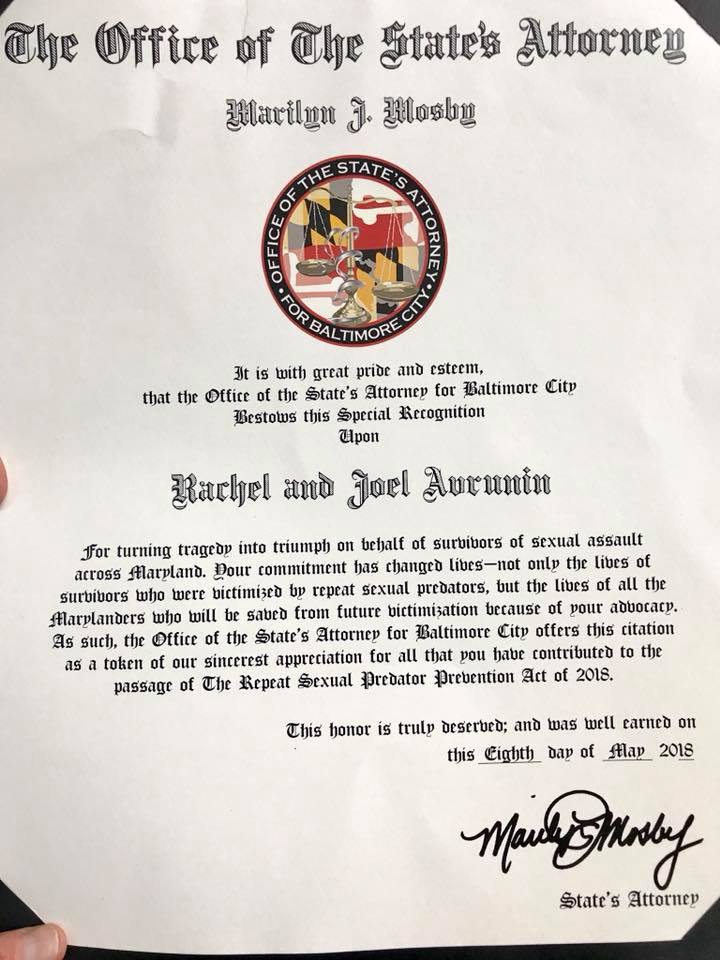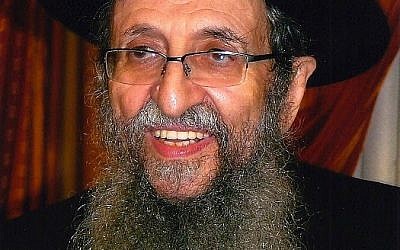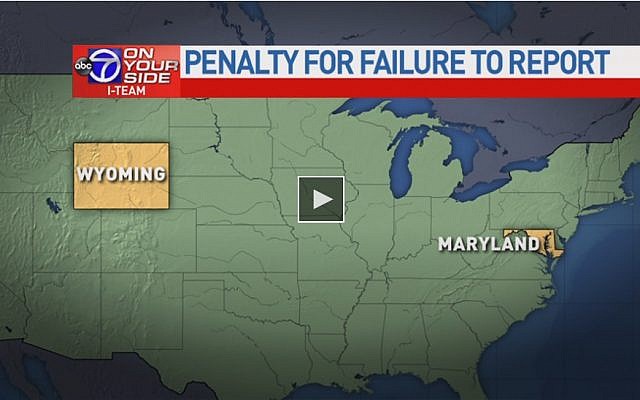Maryland Finally Enacts Penalties for Failure to Report Child Abuse
On April 18, 2019, Maryland took a big step towards protecting children when Governor Hogan signed a law creating criminal penalties for a mandated reporter who fails to report child sexual abuse. Mandatory reporting laws date back to the Child Abuse and Treatment Act (CAPTA) of 1974, and require certain people with knowledge of child abuse to report it to authorities. Until this 2019 legislation, Maryland was one of only two US states (the other being Wyoming) to have mandated reporting on the books, but have no criminal penalty failing to report child abuse. Imagine lowering the speed limit to save lives, but then having no tickets for speeding. A law with no penalty is no law at all. While past failure to report could result in civil liability for the person not reporting abuse immediately, Maryland House Bill 787 establishes criminal penalties. Versions of this bill have been proposed in Maryland for over 15 years, so the passage is a cause for celebration.
After my family was victimized in the state of Maryland by a member of the clergy, I learned that Maryland has some of the worst protections for sexual abuse survivors in the United States. Maryland police regularly ignore reports of rape, closing them as “unfounded” at nearly twice the rate in other states. When a victim pushes their case, police in Maryland force victims to sign waivers or recant entirely. And when a victim has the nerve to question the police, Maryland state attorneys are alleged to get aggressive not with sex abusers, but with abuse victims. Maryland also lacks strong anti-SLAPP laws to protect those who report abuse from being sued for defamation by their abusers. Even teachers indicated by CPS for abuse (but not prosecuted) get transferred from school to school, and only in 2018 did Maryland’s largest school system complete CPS background checks of teachers. If you like the beach, you move to Florida. If you like to ski, you move to Colorado.
Maryland’s legal environment makes it a sandy beach (or a powdery ski slope) for those who like to sexually abuse children.
In fact, Maryland Delegate C.T. Wilson noted that Catholic priests seeking to escape punishment for abuse in Pennsylvania have been relocating to Maryland. Wilson plainly stated, “Maryland was a repository for bad actors because we had soft laws.”

The first big recent change to Maryland’s hostile environment to victims came in 2017 when Wilson sponsored a bill to expand the civil statute of limitations window from 25 to 38, understanding that it can take decades for abuse survivors to come forward. With a criminal justice system easy on sexual abuse, expanding the civil window is the next best step for victims to obtain justice.
The next big change came in 2018 when I had the honor and privilege to provide testimony to Annapolis in support of the Repeat Sexual Predator Prevention Act, being championed by Baltimore City States Attorney Marilyn Mosby. Prior to this act, in the rare circumstance police investigated sex crimes, and in the rarer circumstance charges were filed, the rules of evidence in Maryland prevented prosecutors from introducing evidence of other sexual crimes. Maryland’s rules prevented the introduction of patterns of sexually abusive behavior as evidence (including multiple victims). The 2018 law had languished in committee for years, being opposed by Jewish leadership, Catholic leadership, and criminal defense attorneys. Once it got out of committee, it passed, and Maryland took another big step towards protecting children and other victims of sexual abuse. However, the accompanying bill to establish criminal penalties for not reporting child abuse did not make it to a vote in 2018.
In 2019 Maryland took the next big step in victim protection, when the criminal penalties not only got a vote, but were signed into law. I cannot find another article celebrating Governor Hogan signing this bill, and it is quite important in the battle to improve the law and make sure no other family goes through what my family has endured.
Maryland’s failure to report law previously did not address penalties for violations, only penalties for interfering in a report. Maryland Family Law § 5-705.2 stated:
No penalty was established for those who delayed reporting or failed to report altogether. Even Maryland legislators had no idea the gaping hole in their own law. Maryland Senator Joan Carter Conway (D-Baltimore) said,An individual may not intentionally prevent or interfere with the making of a report of suspected abuse or neglect as required by law. A person who violates this section is guilty of a misdemeanor and, on conviction, is subject to imprisonment not exceeding 5 years or a fine not exceeding $10,000 or both.
The new law faced opposition from those who thought the punishment was draconian, and that taking away professional licensing was punishment enough for failure to report. In fact, Del Kathleen Dumais (D-Montgomery) reportedly said that since the 2015 license revocation law hadn’t been used, they shouldn’t pass more laws. Arguments like these, combined with opposition from the Jewish and Catholic lobbies kept this bill languishing in committee.I was shocked. I didn’t realize that we were only one of two [states without penalties for failure to report]
The new law modifies Section 5-704 of the Maryland Code of Family law where mandated reporters are defined by adding the following language:
While this law alone does not solve the sexual assault investigation and prosecution gap in Maryland, it does provide a tool for more progressive prosecutors to begin unraveling this crime.(B) A PERSON WHO VIOLATES THIS SECTION IS GUILTY OF A MISDEMEANOR AND ON CONVICTION IS SUBJECT TO A FINE NOT EXCEEDING $10,000 OR IMPRISONMENT NOT EXCEEDING 3 YEARS OR BOTH.
Unfortunately loopholes still exist. Maryland Code of Family Law Section 5-704 defines mandatory reporters as:
But Maryland Code of Family Law Section 5-705 provides an exemption from these laws from clergy if they are:…health practitioner, police officer, educator, or human service worker, acting in a professional capacity
bound to maintain the confidentiality of that communication under canon law, church doctrine, or practice
 |
| Rabbi Shmuel Kamenetsky |
Unfortunately, the clergy exemption is still too prevalent in many states. Maryland law does not clearly differentiate between a Rabbi operating within confidential canon law/rabbinic doctrine, and a Rabbi who is working as a teacher, a school principal, a camp director, or a medical doctor. The largest Jewish community in Maryland mostly follows the rulings of the Agudath Israel of America, who requires rabbinic approval prior to reporting abuse. One of the largest religious schools specifically brings questions to Rabbi Shmuel Kamenetsky who also requires Rabbinic screening of child abuse prior to reporting. Rabbis in Maryland trained at the local Ner Israel rabbinic college advise that when there is an indication of abuse, people should
Call CHANA [our religiously directed private community organization], and together with their guidance and support, they will help you navigate if and when to involve the police, CPS, or whatever may be most appropriate.Should a school principal, teacher, or healthcare worker be charged under the new mandatory reporting law, the vague wording will put prosecutors and judges in the uncomfortable situation of litigating the intricacies of Jewish law (halacha). Will the rabbis who delay reporting abuse while they run internal investigations be able to claim their behavior is in keeping with canon Orthodox Jewish law? What makes a person a Rabbi? In the ultra-Orthodox world, often a formal ordination (smicha) process is not required, merely a letter from a school principal (Rosh Yeshiva) calling a student a Rabbi. Could a school teacher charged under the new law get a last minute smicha exempting him from the law?
Catholic opposition to clergy reporting is actually starting to abate, led by new initiatives. It certainly helps that prosecutors in Maryland have started to look through files of the archdiocese of Baltimore. As of today, the most vocal opponents of mandatory clergy reporting are not Catholic but Jewish. In response to mandatory clergy reporting laws being debated in neighboring Washington DC and Virginia, Rabbi Shmuel Herzfeld provided what I would term a strawman argument as he commented:
Turning clergy into policemen is very dangerous…….If we try to hurt how religious societies function, it will hurt childrenRon Halber of the Jewish Community Relations Council of Greater Washington offered tepid support to clergy reporting, but then walked it back with the caveat:
In some traditions there are privileged communications that take place between religious authorities and parishioners. We want to make sure there’s nothing blocking free exerciseIt is ironic that prosecutors in Maryland are investigating the Catholic Archdiocese of Baltimore, but have made no public inquiries into the Jewish Archdiocese (known as the Vaad of Baltimore and Vaad of Greater Washington). A push for mandatory clergy reporting in Maryland as is currently under debate in DC and Virginia would be a great first step.
The problem is that Maryland Code Sections 5-704 and Sections 5-705 are in conflict due to the vague language. The legislature could fix this in at least two ways. First, narrow the legal definition of clergy-communicant privilege by defining who can claim the religious exemption and when. A Priest must have a church, and a Rabbi must have a synagogue. The disclosure must be in a recognized protected conversation. Right now the law fails to clearly differentiate abuse learned through spiritual privilege, and abuse heard through other means, such as while playing a game of basketball. The aforementioned Jewish community group that reportedly chooses which cases to report to police will sometimes refer abuse victims to a Rabbi for therapy. Is that Rabbi required to report child abuse he learns about because he is a therapist, or is he exempt from reporting because he is a Rabbi? The law does not make it clear.
Even better, the second way would be to just do away with this exemption and solve the problem as dozens of other states have already done (and has been largely upheld by the courts such as in California). There are limits to what you can do under the guise of religion. Freedom of religion doesn’t permit human sacrifice. Most states rule that freedom of religion does not permit child brides and polygamy. Even the religious exemption for vaccination is being reconsidered. Likewise, we should not allow child abuse or child abuse disclosure to be protected as a religious act.
Ultimately, the vague clergy exemption will need to be litigated by the first prosecutor who is courageous enough to challenge the Jewish and Catholic lobby in the state of Maryland. It is important that elected officials begin to ask difficult questions of those in law enforcement who seem more angered by vocal victims than by abusers. Abusive prosecutors and abusive sheriffs are nothing new, and despite operating under broad immunity, federal investigations and groups like the ACLU have worked to reform these practices. Ultimately, the citizenry has to demand accountability from those in charge. Prosecutorial tolerance for Orthodox Jewish abusers and those who fail to report abuse such as has been documented in Baltimore, Lakewood, and Brooklyn must end.
Publicize this new law. Call the editors at the Baltimore Sun, the Frederick News Post, and the Washington Post and ask them why they haven’t covered this legislation. It will soon be a criminal offense to fail to report child sexual abuse for mandatory reporters. It is time citizens of Maryland ask prosecutors running for States Attorney what they have done to enforce this new law and to ask legislators to stop allowing religious exemptions for mandatory reporting of child abuse. It is also time to build on the success of 2018 and 2019 by rallying for mandatory clergy reporting, police investigatory reform, removing the civil statute of limitations (which sadly failed in 2019), and anti-SLAPP free speech legislation for survivors of sexual assault.
—
Note: I am not a lawyer and this column is not meant as legal advice but merely opinion on public legislation. If you have questions on your own legal situation, consult a competent attorney. Always report child abuse to the proper authorities in your state.
https://blogs.timesofisrael.com/maryland-finally-enacts-penalties-for-failure-to-report-child-abuse/?fbclid=IwAR055e95Ti4BcwCvDTSng4B5pHZUr1k6EnpX35DgCdOyFM8LvFauhudvr40



